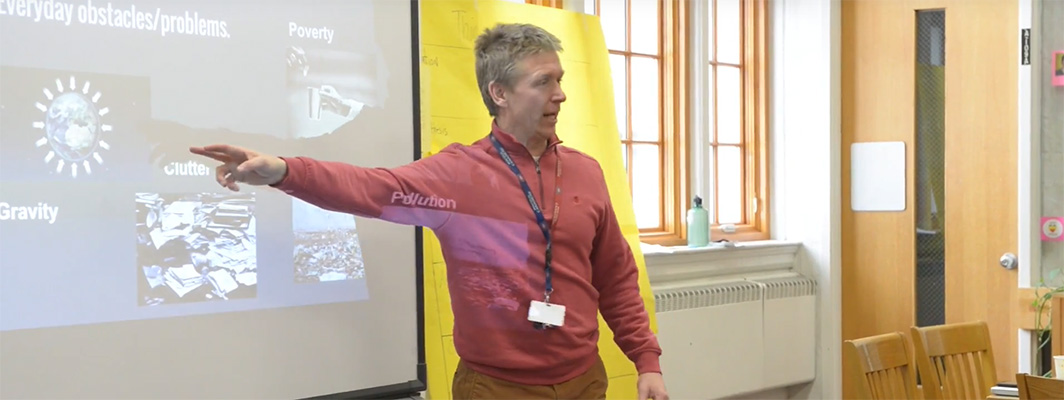
With policymakers, district administrators, and teacher prep programs widely embracing coaching as a way to help teachers become more effective, the know-how on what makes a good coach is more important than ever.
Marshall Ganz — an expert on political organizing, leadership, and social movements to build change — unionized farmworkers alongside Cesar Chavez and organized students and voters for Barack Obama’s 2008 presidential campaign. Along the way, he learned a few things about coaching people to do their best work.
At a recent Leadership Institute hosted by the Education Redesign Lab, Ganz, a senior lecturer at the Harvard Kennedy School, as well as a lecturer of public policy at the Harvard Graduate School of Education, spoke to education and civic leaders about how to get the best out of people through coaching.
1. Observe
You can’t help someone solve a problem without knowing what the problem is. “Why are they struggling? What is this struggle about?” Ganz asked. Get into the nitty gritty of the challenges being faced, asking probing questions that ensure you fully understand what the teachers you are coaching are up against. This might be illuminating not only for you; they, too, might articulate the problem to themselves in a way they haven’t before.
“You have to break through all of the generalities to get enough specificity that you can actually see what’s going on,” Ganz said.
2. Diagnose
Once you have a good handle on what the problem is, diagnosis the root of the challenge. That will dictate how to proceed. Is it motivational? If a teacher is struggling because she isn’t putting in enough effort to solve the problem, or because she doesn’t believe there is a solution, your coaching strategy will be different than if the challenge is educational — she is struggling because she doesn’t yet have the skills to address the problem at hand or doesn’t have the information she needs to proceed. Or, the challenge might be strategic — she has all of the information, but isn’t sure how to proceed, or has set unrealistic goals.
“If you think it’s a skill problem, but really it’s a motivational problem, and you’re saying, ‘Let’s go over how to do this for the 53rd time,’ what are you doing?” Ganz asked. “You’re frustrating both of you. It’s a problem of the heart, not of the hands. Distinguishing between those is one of the most important elements of coaching.”
3. Intervene
Once you’ve identified the problem and its nature, help teachers you are coaching figure out what to do. That’s different from telling them what to do. If the challenge is, at its core, motivational, encourage them, or help them identify and confront the emotion that’s standing in their way. Is the person you are coaching scared that a new way of engaging students with the material won’t translate to higher standardized test scores? Is he hesitant to confront a student about poor behavior because he doesn’t want to deal with more conflict? Be vulnerable about times fear has stood in your own way and model the courage it took to overcome it.
If the challenge is educational, help him practice the skill he needs — be it classroom management, evaluating data, or asking for support.
If it’s strategic, ask questions about the tactics he is already using, and figure out where his plans are going astray. Help him think about his problem differently, and ask him what he thinks is working or not working. Help him map out a strategy that gets him what he needs with the resources he already has.
4. Debrief
Before wrapping up a session, always ask the person you are coaching to synthesize the takeaways. What are some concrete next steps they can take?
5. Monitor
Nothing is fixed in a day. Schedule regular check-ins to support the teacher you are coaching as she implements your coaching into his practice.
Good coaching requires a relationship, built on a commitment to the coachee and to the accomplishment of her goals. You need that foundation to get through the probing questions that good coaching requires. If the coaching isn’t challenging, it’s not good coaching, Ganz said.
Being a master of whatever you’re coaching for isn’t enough. “You have to be a master at asking questions,” Ganz said. In fact, that’s key to every step. Asking questions, rather than prescribing advice, facilitates development rather than engendering dependency, and helps your coachee recognize that the answers often already lie within them.
This article originally appeared on Usable Knowledge from the Harvard Graduate School of Education. Read the original version here.